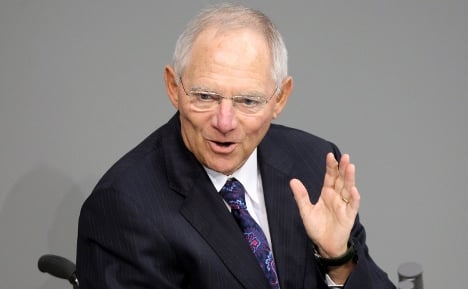Speaking in parliament, Schäuble said it was “very important, especially given the worrying news from the eurozone, that the fund can, if necessary, release short-term funds to recapitalise banks.”
“It is very important that we combat the danger of contagion in the banking sector by providing access to additional capital,” he said.
Ratcheting up the pressure on Athens, Schäuble said it was too soon to talk about a second bailout package for Greece, considering the country has yet to implement reforms required to receive its first full disbursement.
“The debate over a second aid package to Greece is very premature given the current difficulties around the payment of the first package,” said the minister.
The European Union and International Monetary Fund bailed out debt-wracked Greece in May 2010, with a package worth €110 billion ($155 billion).
Athens was due to get its next €8-billion payout from the fund later this month but must first demonstrate it has achieved the fiscal targets laid down by its international partners.
However, EU and IMF auditors promptly left Greece last week saying more work was needed, sending the markets crashing and raising fears that Greece would not live up to its fiscal promises.
In July, EU leaders agreed a second bailout package worth some €109 billion, this time with a one-off contribution from the private sector.
“We understand the problems in Greece. Reducing a deficit … results in serious strains for the population concerned,” Schäuble said.
“But at the end of the day, it is up to Greece itself to decide whether it is ready to take the necessary measures to reduce its deficit and its too-high debt,” he added.
Anger is growing in Germany, which contributes the lion’s share of the guarantees for the rescue funds, over Greece’s perceived backsliding in implementing reforms, with some politicians calling for Athens to leave the euro.
“The situation in Greece is serious,” Schäuble said.
AFP/emh



 Please whitelist us to continue reading.
Please whitelist us to continue reading.
Member comments